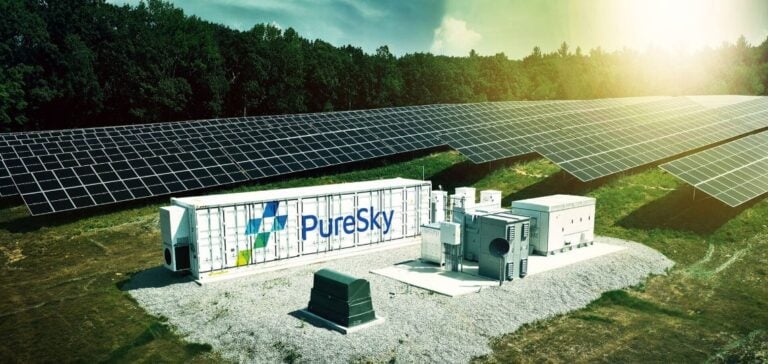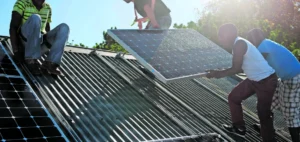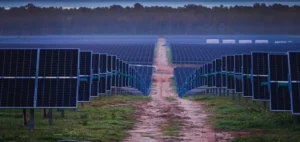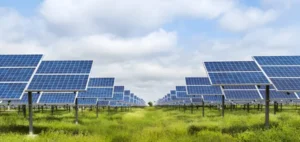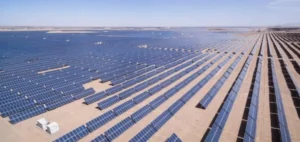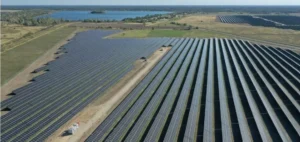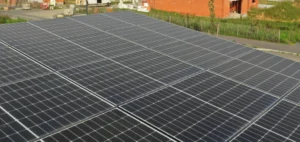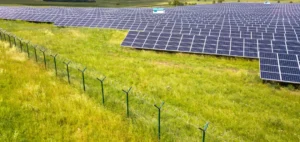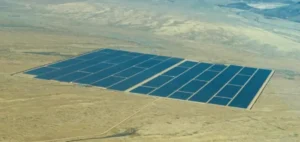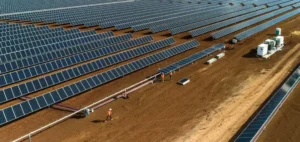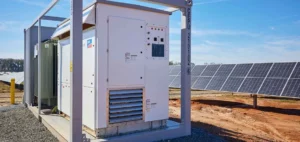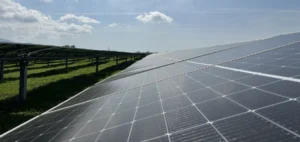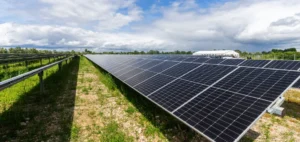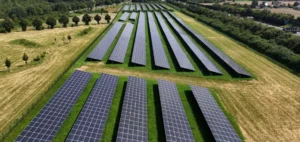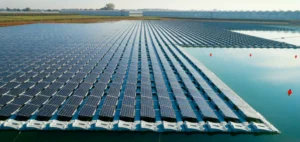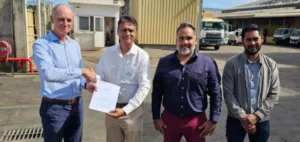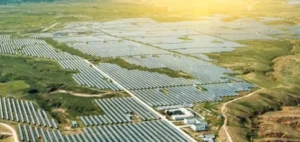A 4.4 MW community solar farm located in Sandwich, Massachusetts, recently began commercial operations. Equipped with a 1.4 MW energy storage solution, this infrastructure is part of an ongoing energy transition and grid modernization effort in the United States.
The site includes 11,172 solar panels, with an estimated annual production of 5.7 million kWh. This capacity allows for a reduction of up to 8.81 million pounds of CO2 annually, equivalent to removing 951 vehicles from the road. The integration of storage solutions also enhances the reliability of electricity networks in a region facing increasing energy demand.
Public partnerships at the core of the project
The land hosting this solar farm belongs to the local municipality, which benefits from steady revenue through a lease agreement. Additionally, a neighboring municipality has secured reduced-rate solar energy credits, significantly lowering electricity costs over the project’s lifespan. This public cooperation enables local communities to reap the economic and energy benefits directly.
The role of Massachusetts in energy transition
The political framework in Massachusetts actively supports such hybrid projects, which combine renewable energy production and storage. This strategy aims to lower costs associated with peak consumption and prevent network outages by promoting more efficient energy distribution.
A model for addressing energy challenges
In the face of growing demand and increased pressure for sustainable energy solutions, hybrid infrastructures like this solar farm offer an effective response. Combining solar production with storage ensures supply stabilization and optimizes costs linked to intermittent energy sources.
This project exemplifies the evolution of the energy sector in the United States, where collaborations between public and private stakeholders are becoming essential to maintain economic competitiveness while achieving climate goals. It underscores the need for long-term planning and regulatory reforms to support national energy transition efforts.

